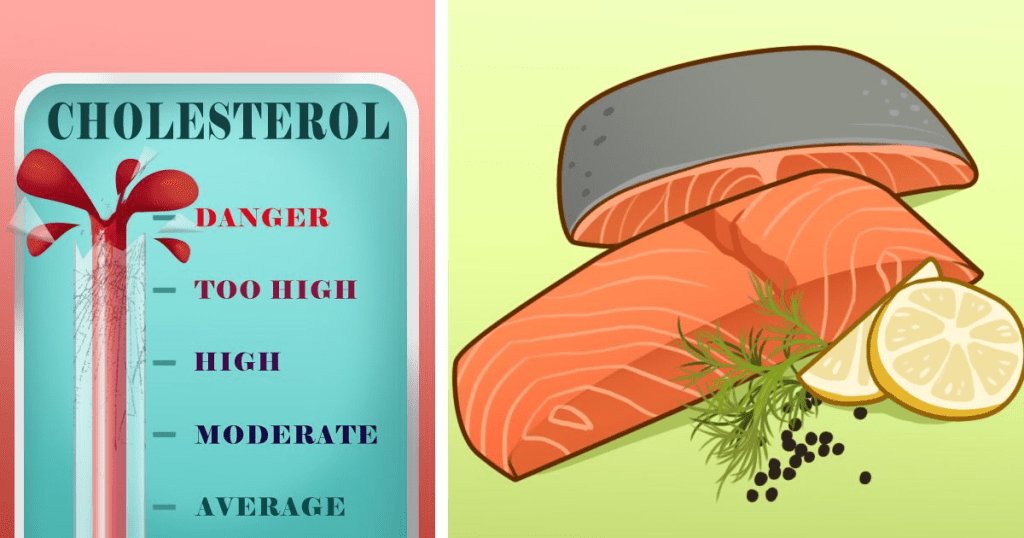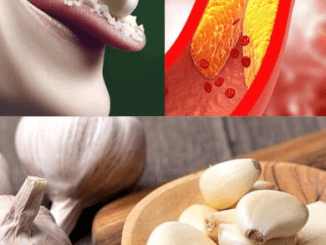High cholesterol is a health concern that affects millions of people worldwide, raising the risk of heart disease, strokes, and other cardiovascular issues. Often, the first response to high cholesterol is medication, but making lifestyle changes at home can significantly impact cholesterol levels and may even help you avoid medication altogether. Let’s explore practical and natural ways to manage cholesterol levels effectively.
Understanding Cholesterol and Why It Matters

Cholesterol is a waxy substance found in your blood. While your body needs cholesterol to build healthy cells, too much of it can lead to fatty deposits in your blood vessels. These deposits can restrict blood flow, potentially leading to heart attacks or strokes. The key is balancing “bad” LDL cholesterol and “good” HDL cholesterol. Luckily, some simple changes at home can help you keep this balance in check.
1. Cut Out Trans Fats and Limit Saturated Fats
One of the first steps in managing cholesterol is rethinking the types of fats you consume. Trans fats and saturated fats are notorious for raising LDL cholesterol levels.
- Avoid Trans Fats: Found in many processed foods, margarine, and fried items, trans fats are extremely harmful to heart health. Check food labels and avoid anything containing “partially hydrogenated oils.”
- Limit Saturated Fats: Red meats, butter, cheese, and full-fat dairy products are high in saturated fats, which can raise LDL cholesterol. This doesn’t mean you have to eliminate these foods entirely—just consume them in moderation.
Cutting back on these unhealthy fats doesn’t mean adding more sugars or processed carbs to your diet. Stick to natural, whole foods to keep your heart healthy.
2. Embrace Polyunsaturated and Monounsaturated Fats
Not all fats are bad! In fact, some fats can help lower LDL cholesterol and improve heart health. Incorporating more polyunsaturated and monounsaturated fats into your diet can make a positive difference.
- Choose Heart-Healthy Oils: Swap out butter and lard for oils like olive oil, peanut oil, and soybean oil. These oils contain good fats that help maintain a healthy cholesterol balance.
- Eat Fatty Fish: Fatty fish, such as salmon, tuna, herring, and sardines, are rich in omega-3 fatty acids, which can lower cholesterol levels. Aim for at least two servings per week for the best results.
By choosing the right fats, you can protect your heart while enjoying flavorful, satisfying meals.
3. Add More Fiber to Your Diet
Fiber, especially soluble fiber, is known for its ability to lower LDL cholesterol. Fiber acts like a sponge, absorbing cholesterol in the digestive tract and removing it from the body. Adding fiber to your diet can be an easy and delicious way to support heart health.
- Go for Whole Grains: Brown rice, oats, barley, and whole-wheat products are high in soluble fiber and can help lower cholesterol.
- Load Up on Fruits and Vegetables: Colorful fruits and veggies, particularly those with deep hues, are packed with fiber and antioxidants that benefit your heart. Leafy greens, berries, and apples are great choices.
- Include Nuts and Beans: Nuts like almonds and walnuts, as well as beans like lentils and chickpeas, are excellent sources of fiber and healthy fats.
Making fiber a staple in your meals can have a powerful impact on your cholesterol levels and overall wellness.
4. Get Moving with Regular Exercise

Exercise is often associated with weight loss, but it also plays a vital role in managing cholesterol. Physical activity increases HDL (good) cholesterol and helps reduce LDL (bad) cholesterol. Plus, regular exercise can help you maintain a healthy weight, which is essential for heart health.
- Aim for 30 Minutes of Aerobic Exercise: Activities like brisk walking, jogging, cycling, and swimming are excellent choices for boosting heart health. Try to exercise at least 30 minutes a day, five days a week.
- Incorporate Strength Training: Strength exercises, like lifting weights or doing body-weight exercises, can help build muscle and burn calories, contributing to better cholesterol levels.
- Make Exercise a Habit: Find activities you enjoy to make it easier to stick with your routine. Whether it’s dancing, hiking, or even gardening, staying active is key.
By committing to regular exercise, you’ll not only improve your cholesterol but also feel stronger and more energetic.
5. Reduce Stress Levels
Stress doesn’t just impact your mood—it can also raise cholesterol levels. When stressed, your body releases hormones that can lead to higher LDL cholesterol. Managing stress is essential for keeping your heart and mind healthy.
- Practice Relaxation Techniques: Techniques such as deep breathing, meditation, and yoga can help calm your mind and lower stress levels.
- Make Time for Fun and Laughter: Engaging in activities you enjoy and spending time with loved ones can release feel-good hormones that counteract stress. Don’t forget to laugh—it’s great for your heart!
- Establish a Healthy Routine: Create a daily routine that includes breaks, physical activity, and sleep. A structured, balanced day can help reduce stress and keep cholesterol levels in check.
Managing stress is a powerful tool in the fight against high cholesterol and supports a more balanced, fulfilling life.
6. Avoid Smoking and Limit Alcohol Intake

Smoking and excessive alcohol intake can negatively impact your cholesterol levels and overall health. Smoking damages blood vessels, lowers HDL cholesterol, and raises LDL cholesterol, while excessive alcohol can lead to weight gain and increased cholesterol levels.
- Quit Smoking: If you smoke, quitting is one of the best things you can do for your cholesterol and heart health. There are numerous resources available to support you on this journey.
- Limit Alcohol Consumption: Moderate drinking (one drink per day for women and two for men) may have heart benefits, but overindulgence can lead to high cholesterol and blood pressure.
By making mindful choices about smoking and drinking, you’ll be taking an essential step toward better cholesterol management.
Working with Your Doctor to Achieve Optimal Health
While lifestyle changes can be effective in managing cholesterol, it’s essential to keep your doctor in the loop. Regular check-ups and blood tests will help track your progress, and your doctor can provide additional guidance if needed.
- Get Regular Cholesterol Checks: Understanding your cholesterol numbers is vital for knowing if your efforts are paying off. Regular testing provides a clear picture of your heart health.
- Discuss Your Diet and Exercise Plan: Share your lifestyle changes with your doctor so they can offer any necessary adjustments or advice.
- Consider Medication if Needed: If lifestyle changes aren’t enough, medication might be necessary. Your doctor will work with you to determine the best course of action for managing your cholesterol.
With the support of your healthcare provider, you can confidently take control of your cholesterol and overall health.
Conclusion: Take Charge of Your Heart Health Today
Managing cholesterol doesn’t have to be complicated. By making mindful choices in your diet, staying active, reducing stress, and avoiding harmful habits, you can take control of your heart health right from home. These simple lifestyle adjustments may be all you need to maintain healthy cholesterol levels without relying on medication.
So, why wait? Start making these small changes today to enjoy a healthier tomorrow. Your heart—and your future—will thank you.


